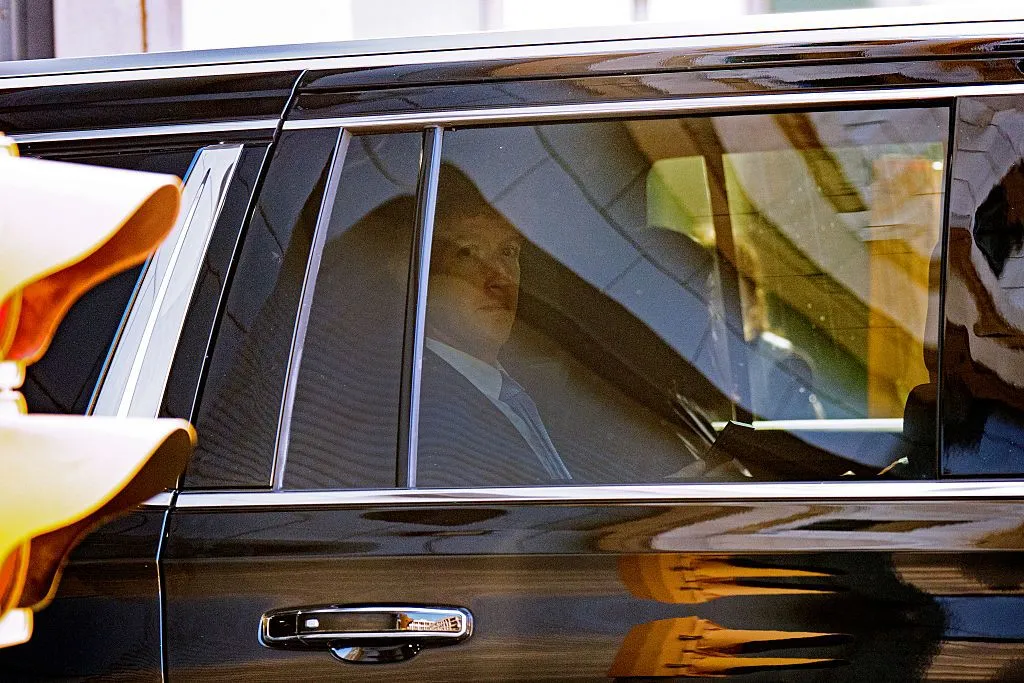WASHINGTON, DC: Meta CEO Mark Zuckerberg took the stand Monday in a pivotal antitrust trial where the Federal Trade Commission (FTC) is seeking to dismantle parts of his tech empire.
The case, launched in 2020 during the final months of the Trump administration, accuses Meta of maintaining a monopoly in the social media space through strategic acquisitions.
The FTC contends that Meta — formerly Facebook — has unfairly dominated the market by acquiring fast-growing rivals, namely Instagram in 2012 and WhatsApp in 2014, for $1 billion and $19 billion respectively. The agency is pushing for a breakup of Meta, potentially forcing the company to divest from either platform.
Dressed in a dark suit with a pale blue tie, Zuckerberg became the first witness to testify as the trial opened in federal court in Washington, a proceeding expected to extend over two months.
Defending Acquisitions
In his testimony, he defended the acquisitions, arguing they were aimed at enhancing innovation and user experience, not eliminating competition.
The FTC presented internal communications to suggest otherwise, including a 2011 email in which Zuckerberg wrote that “Instagram seems like it’s growing quickly.”
Another message from 2012 revealed concern: “We’re so far behind that we don’t even understand how far behind we are… I worry that it will take us too long to catch up.”
On the stand, Zuckerberg said those emails were part of early deliberations and didn’t reflect an intent to eliminate Instagram as a competitor.
He claimed the purchase was driven primarily by Instagram’s camera technology, and that Meta had since helped the platform evolve significantly.
In its opening arguments, the FTC framed Meta’s strategy as anticompetitive.
“They decided it was easier to acquire rivals than to compete with them,” said FTC attorney Daniel Matheson, referencing a 2012 memo in which Zuckerberg allegedly discussed the strategic need to “neutralize” Instagram — a document Matheson called “a smoking gun.”
Meta’s legal team rejected this narrative, noting that the FTC had originally approved both deals over a decade ago.
Read More: Bluesky CEO Jay Graber Subtly Criticizes Mark Zuckerberg and Meta
Attorney Mark Hansen, representing Meta, stated that the acquisitions improved the services and added consumer value.
“Mergers aimed at growing and improving products have never been found illegal — and they shouldn’t be in this case,” he said.
Meta maintains that the social media landscape remains highly competitive, pointing to rivals such as TikTok, YouTube, and X (formerly Twitter) as evidence that users and advertisers have alternatives.
Daily Users
Meta’s platforms collectively draw over 3.2 billion daily users, and Instagram alone is projected to generate more than half of the company’s U.S. ad revenue by 2025, according to Emarketer.
The trial is taking place as Meta’s political ties come under renewed scrutiny.
The company has made overtures toward former President Trump in recent years, including a $1 million donation to his inaugural fund and the appointment of Trump allies Dina Powell McCormick and UFC’s Dana White to its board.
In 2021, Meta paid $25 million to Trump to resolve a lawsuit related to his social media ban after the Capitol riot.
While the Wall Street Journal reported that Zuckerberg personally lobbied Trump to drop the FTC case, Meta declined to confirm the interaction, offering only a statement that the FTC’s legal action “defies reality.”
This case is unfolding alongside other high-profile antitrust proceedings.
Also Read: Facebook Wins Initial Legal Battle to Block Ex-Employee’s Scandalous Book
The Department of Justice recently made strides in its lawsuit against Google, with a judge concluding that the tech giant controls a 90% share of the online search market — prompting calls for a potential breakup.
Legal experts believe the FTC’s challenge against Meta may be more difficult.
Laura Phillips-Sawyer, a business law professor at the University of Georgia, noted that the social media sector is more diverse and competitive than search, weakening the FTC’s argument.
“They’ve got a steep hill to climb,” she said. “Pushing for the divestiture of Instagram or WhatsApp is going to be a long and complex process.”
Other tech giants like Apple and Amazon are also under the regulatory spotlight, with federal enforcers pursuing separate antitrust claims aimed at limiting corporate dominance across the digital economy.









